
|
| |
FUNDACIÓN Tecnalia RESEARCH & INNOVATION (tecnalia)
| |
| |
|
The FUNDACIÓN Tecnalia RESEARCH & INNOVATION (tecnalia) was born the 1st of January, 2011, as a research organisation resulting from the merging of eight research organizations: Fundación Cidemco, Fundación ESI-European Software Institute, Fundación European Virtual Engineering, Fundación Fatronik, Fundación Inasmet, Fundación Labein, Fundación Leia and FundaciónRobotiker.
Tecnalia is the leading private research and technology entity in Spain and the fifth largest in Europe. Tecnalia employs about 1,450 people (164 PhDs) and its turnover is 121 M€, it filed 53 patents, had 3800 clients and created 8 spin-offs in year 2009. Tecnalia is very active in participating the Seventh Framework Programme (FP7) having already 150 funded projects, 31of them coordinated.
Several Tecnalia´s research units - Construction, Energy, Environment, Telecom, Foundry &Steelmaking, Industrial Systems, Transport, Biomaterials and Biotechnology & Pharma- are working in nanotechnology and specifically in some research areas such as nanomaterials, photonics, computational design and nanosafety. At this moment TECNALIA is taking part in several in-progress FP7 European research projects focused on nanotechnology (e.g. IAPETUS, LAYSA, CODICE, AEROCOIN´S, CODICE, NANOMATCH, EFFACEUR, POLYFIRE) and nanosafety (e.g NANEX, NEPHH and SCAFFOLD).
|

|

| |
| | | |
| |
Commissariat a l'Energie Atomique et aux Energies Alternatives (CEA)
| |
| |
|
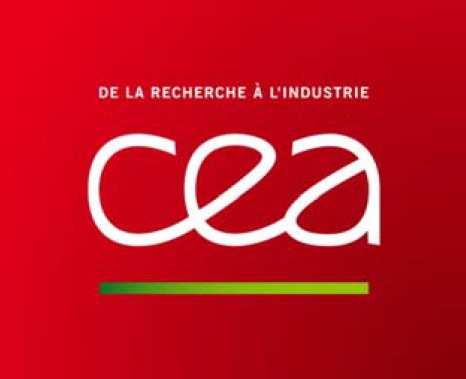
|
The NanoChemistry and NanoSafety Laboratory (CEA - LCSN, director: F. Tardif) is a 35 people laboratory being part of the Department of Technological Research of the CEA (Alternative and Atomic Energies Agency). The 2 specialities are the synthesis of nanoparticles by wet processing for many different applications such as anti counterfeiting, marked nanoparticles for biology, photo voltaic, anti UV, lightening, etc. and the exposure reduction to nanoparticles so called Nanosafety.
The CEA - LCSN team develops for toxicological studies engineered nanoparticles with adjustable surface properties and presenting an optical detection function of radioactive core (nanotracers), develops experimental devices for nanoparticle detection, and performs transport experiments and modelling for environmental applications. LCSN performs characterisation of individual protection equipments and filters for both aerosols and hydrosols.
The LCSN is organizing every 2 years the NanoSafe conferences; manage a didactical web site on nano risk: www.nanosmile.org and supports actively the EC Nanosafety Cluster.
|

| |
| | | |
| |
National Centre of Scientific Research "DEMOKRITOS" NCSR (DEMOKRITOS)
| |
| |
|
DEMOKRITOS is a state owned multidisciplinary research centre, the larger of Greece, performing R&D in the area of physical sciences and technology (www.demokritos.gr). The scientific activities of the centre are organised in eight administratively independent Institutes: Nuclear Physics, Nuclear Technology and Radiation Protection, Materials Science, Telecommunications and Informatics, Microelectronics, Physics/Chemistry, Biology and Radioisotopes and Radio diagnostic Products. DEMOKRITOS employs about 900 permanent and fixed-term-contract employees and its annual turnover is 30 million EURO, 65% from the Greek Government and 35% from third party contracts. Expertise in industrial safety has been developed in the laboratories of Systems Reliability and Industrial Safety Laboratory (SRISL) and Environmental Research Laboratory (EREL), both belong administratively to the Institute of Nuclear Technology and Radiation Protection. SRISL has long experience in quantitative risk assessment of technological systems and risk management, while EREL in Complex Fluid Dynamic dispersion modelling and Hydrogen Safety.
Systems Reliability and Industrial Safety Laboratory (SRISL)
SRISL was founded in 1988 with initial objective the development of an integrated capability for the quantitative risk assessment of large nuclear and non-nuclear systems. The laboratory has contributed to the state-of-the art of system reliability, quantified risk assessment the development of decision support systems with multiple criteria and under uncertainty, land use planning in chemical sites, assessment of human factors for plant safety enhancement and quantified occupational risk assessment. This contribution has been achieved through the participation to over thirty R&D projects partially or totally funded by third party sources including the framework programmes of the European Commission, other international funding organizations, Greek ministries and companies. SRISL is one of the main consultants to the Greek Government in matters related with the safety of industrial installations having the potential to cause a major accident and subject to the SEVESO European Directive. In this capacity the SRISL has either reassessed or analyzed the safety of almost the totality of the Greek industry subject to the SEVESO directive handling LPG, fuels, LNG, ammonia, chlorine and explosives. Recently research and development has been focused in the following areas: a) Decision Support Systems for risk management and emergency response policy selection in major hazard accidents in nuclear and chemical installations, b) Safety enhancement in the process industry through the use of virtual reality tools c) Development of quantified risk models for occupational risks and tools for multicriteria optimization of occupational risk management strategies and d) Quantification of uncertainties in risk analysis.
|
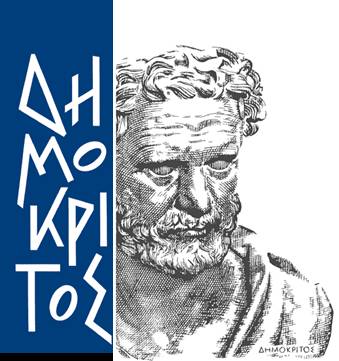
|

| |
| | | |
| |
Central Institute for Labour Protection - National Research Institute (CIOP-PIB)
| |
| |
|

|
The Central Institute for Labour Protection (CIOP) is Poland's main research institution, comprehensively dealing with the problems of improving working conditions in accordance with human psychophysical abilities. The main aim of the Institute’s research and development works is the building scientific foundations to create a system for preventing occupational hazards. The Institute’s main activities in the field of safety and health include research and implementation work, standardization, determination of exposure limits, testing and certification of machinery and manufacturing devices, personal and collective protective equipment; certification of the competence of personnel and educational bodies active in the field of OSH, promotion, implementation and certification of OSH management systems; consultations, education and training in OSH as well as promotion, information and publishing activity in this area, and international cooperation with OSH institutes and international organizations.
CIOP-PIB is the coordinator and the main performer of the national research programme (established by the Council of Ministers in 2007) on "Improvement of safety and working conditions”. The first phase of the programme covered the period 2008-2010 with a budget ca. € 25 million. This programme is being carried out in cooperation with 20 Polish research institutions in this field. It consists of 72 research projects and 136 tasks of so-called "state services" related to implementation of the national policy on OSH. The strategic objective of the Programme is to develop and implement innovative organizational and technical solutions, focused at improvement of human resources, new products, technologies, management methods and systems, aimed at achieving a significant reduction of occupational accidents and diseases in Poland as well as related economic and social losses.
Within the framework of the above Programme, eight research projects concerning the control of major accidents and explosive atmospheres hazards have been carried out by CIOP-PIB and by several research institutes and universities. The general aim of this group of projects is to develop advanced tools for create safety management systems to minimize the risks of major accidents and explosive situations and to mitigate the potential consequences of such events for people, the environment and property. The topics of these research projects are the following:
- Computer-aided risk assessment for establishments posing a major industrial accident hazard and assessment of occupational risk facing workers at workplaces potentially at risk from explosive situations;
- Developing analytic methods and tools for computer-aided management of functional safety under a system of the creation of protection layers for industrial facilities at increased risk;
- Development of a safety management system at establishments at risk of major industrial accidents falling outside the lower-tier or upper-tier establishments;
- Developing a human and environmental risk management system related to the transportation of dangerous chemicals by rail;
- Developing a risk management programme related to the transport of dangerous chemicals by road;
- Risk assessment methods for the workstations potentially at risk from explosions and developing a model explosion-safety document;
- Method of detection of electrostatic discharge in the working environment for prevention of flammable atmosphere ignition in explosion endangered zones;
- Procedures for major accident prevention and mitigation of their consequences – development of tools supporting the realisation of the procedures, and preparation and assessment of the documents required (development and maintenance of the Internet service).
|

| |
| | | |
| |
Acciona Infraestructuras S.A (ACCIONA)
| |
| |
|
Acciona Infrastructures is a leading European construction company developing and managing buildings and civil infrastructures under the sustainability principles. Development and construction of sustainable buildings is within the core strategy of Acciona. Its activities can cover from their design and construction to their operation, maintenance, refurbishment and recycling. It has an international presence in more than 30 countries and its total turnover in 2010 was about 3.6 billion €, employing 14000 people. It has its own R&D Technological Centre of
Madrid, composed by a multidisciplinary team of about 160 high qualified researches, fully dedicated to R&D activities. Its main research lines are Energy Efficiency, Nanotechnologies for new construction materials, Products and systems and Environment Technologies. It has laboratories of nanotechnology and advanced materials, industrialization, RES integration in buildings, ICT, chemistry analysis, augmented reality and workshops for prototyping constructioncomponents.
Acciona Infrastructures plays an active role in the ECTP being part of the High Level Group and of its Executive Committee.
An it´s the representative of ECTP in NanoFutures. It chairs the Energy Efficient Building Association (E2B A) and it is a member of the Adhoc Advisory Group to the European Commission on the PPP on Energy Efficient Buildings. In addition, it chairs and advisory group to DG INFSO on Energy Efficient Buildings.
Acciona R&D technological centre has full equipped laboratory on nanomaterials for construction components built with a high commitment of the risk management department of Acciona, collaboration in the development of internal procedures and risk assessment on specific technologies related to nanomaterials. Acciona is member of the AEN/GET15, standardization committee on nanotechnologies of AENOR, the national standardization agency that represents the national interest in ISO and other standardization bodies. |

|

| |
| | | |
Asociación Española de Normalización y Certificación (AENOR)
|
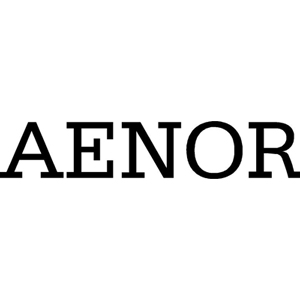
|
The Spanish Association for Standardization and Certification (AENOR) is a private not-for-profit organisation that was created in 1986. Its activity contributes to improving the quality and competitiveness of companies, their products and services. AENOR helps organisations to generate one of the values most appreciated in the current economy: the confidence. AENOR mainly works in two fields, which are developed independently: standardisation and certification. Standardisation: it is the organisation legally responsible for the development and dissemination of technical standards in Spain. Standards indicate what a product should be like or how a service should work so that it is safe and comes up to the consumer's expectations. AENOR offers everyone one of the most complete catalogues, with more than 28,500 sets of standards containing effective solutions.
|
| |
Mostostal Warszawa S.A. (MOSTOSTAL)
| |
| |
|
Mostostal Warszawa S.A. is one of the largest construction companies in Poland with a 60-year history rich in traditions. Although its name is linked inseparably to the rebuilding of Warsaw bridges, the company is presently active in all sectors of the construction market in Poland and Europe. During last 15 years as a consequence of Polish economy transformation and the company commercialization its range of activities has been significantly broadened. Mostostal activities extend to all areas and specialization fields in construction sector, both in project engineering and in works execution. In the civil engineering working area, Mostostal has built roads, was present in urban development, airports, harbours, beach regeneration, execution of dams, water piping, tunnels, gas pipes, water purifiers, metropolitan railways and railroads. Regarding to the building sub sector, Mostostal has executed works like for example: industrial, services, societal utility and real estate buildings.
Moreover through R&D Department Mostostal Warszawa actively participates in various international initiatives connected with Research & Technological Development. Its presence in multinational R&D projects has been visible during last years.
As an example can be given project under acronym COOL-Coverings: “Development of a novel and cost-effective range of nanotech improved coatings to substantially improve NIR (Near Infrared Reflective) properties of the building envelope” or project called: Trans-IND “New Industrialised Construction Process for transport infrastructures based on polymer composite components”. These are just examples showing company’s high interest in developing solutions for construction industry. In 7th Framework Programme, Mostostal is coordinating two large-scale integrated projects Trans-IND and FC District and one STREP project TIBUCON. |
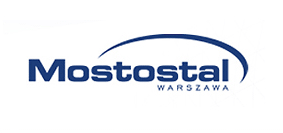
|

| |
| | | |
| | | |
| |
|
|
Rossal SRL is regional leader in NE Romania as regards Solid Waste Management & Landfill Operations. The activity includes waste collecting, transport, sorting, recycling and/or landfilling with own fleet of vehicles, specialized trucks, machines and related equipment. Rossal administrates and exploits 2 large landfills in the region (of which one is ecological, according to EC standards). Rossal operates also city cleaning operations, for 1 large city with over 20 surrounding villages (for about 500,000 inhabitants).
Rossal assure primary technical operations for solid waste management in 2 locations, including for metal, plastic and building waste. Unlike traditional "Total Waste Management" companies, Rossal company has no incentive to send all waste to landfill. Our recycling and waste management solutions help our clients to identify and segregate at source the recyclates present in their waste streams. This helps them to maximise their diversion from landfill and minimise the costs of disposal thereby helping the environment and potentially saving the money. For waste plastics, the company has its own 2,000 m2 Materials Recycling Facility equipped with a weighbridge, sorting lines, balers, industrial shredders, granulators
etc. The end products are flakes and pellets for further industrial processing.
Rossal position in the centre of the Romanian NE region permits an efficient implementation of the proposed project results at regional and national level.
|

| |
| | | |
| |
Tecnología Navarra de Nanoproductos S. L. (TECNAN)
| |
| |
|
Tecnología Navarra de Nanoproductos S. L. (Tecnan S. L.) was created in December 2007, and offers its technology in close symbiosis to the regional business network, but with a resolute projection to the European and worldwide markets. Tecnan S. L., supported by highly skilled scientists, has access to state-of-the-art facilities for the production of different kinds of nanoparticles in relatively large amounts and characterised by their high purity. Using both wet and dry technologies, Tecnan S.L. is capable to synthesize nanoparticles in the range of the tens to the hundreds of kilograms (mainly ceramic oxides, up to date). The synthetic protocols used by Tecnan S. L., due to their flexibility, allow the preparation of a wide spectrum of nanoparticle materials, which can be employed as catalysts for the automobile industry and the energetic sector, sensors for gases and atmospheric pollutants, photocatalysts, materials for lighting devices, and many other uses. Two main groups of nanoparticles are available, such as : (1) Nnano-oxides: e.g., nano-TiO2 and nano-CeO2 and , (2) Ccomplex mixed nanoparticles: e.g complex mixed nanoparticles useful as catalyst in many chemical processes. Apart from the synthesis of a wide diversity of oxides, both simple and complex, TECNAN has a wide experience in the field of surface treatment for nanoclays in order to improve their properties.
TECNAN optimises mainly three parameters, namely exfoliation of the nanoclay, size reduction of the platelets and impregnation with tailor made coupling agents.
|

|

| |
| | | |
| |
Netcomposites (NETCOMPOSITES)
| |
| |
|

|
NetComposites is an applied research, development and consultancy specialising in fibre-reinforced plastic composites and also has a strong presence in web-based information and technology transfer. The
company is experienced in participating in and managing collaborative research projects, at European and national level, with successful, commercially exploitable outcomes, for example Surefire UK DTI project (€900K) and Polyfire EU FP7 project (€3.1M). They work from a dedicated practical development centre in Chesterfield, UK, with facilities and expertise for formulating, processing and testing composite materials and prototype parts.
|
| |
| | | |
| | | |
| |
|
ICECON SA is national leader in Romania as regards research and exploitation dedicated to building sector. Key business: research – development of new building materials – including nano- and biostructures, production of certain composite materials for building industry, production of certain profiles etc. and related building technologies, equipment (built-in equipment, technological equipment), building management; construction and demolition technical regulations, standards, technical specifications, guidelines, guides of good practice and manuals according to the European Documents for constructions and demolitions; environment protection for building sector, building waste recycling; structural testing, technical agreements; third party inspection for construction products and equipment, internal systems and equipment, scientific and technical books publishing. Since 2000, ICECON S.A. is full
partner member in the European Consortium of Construction Machinery Testing Bodies – EuroTest. The company has 100% market share in accrediting and certification of conformity in Romania, including dedicated tests for building materials and equipment, and cooperates with practically all producers of building materials in Romania. It is either representative,
and/or R&D performer for important international companies on the market such as: ASTALDI SpA, BECHTEL, NORD CONFOREST, ZUBLIN, GRASSETTO LAVORI, TODINI, TUNGAL METROU, COTEXIM, DAFORA, SOIL TECHDRILLING, ARCOMNICO, SITMA, AUTOSPECIALI BLINDATI, STEEL BUILDING, METAL YAPI, KOBER, OLTCHIM, POLYMOLD, POLISTER, BEYLER, POLICOLOR, HENKEL, BAUM etc. ICECON SA supports such companies in their effort of implementing guides of good practice and safety according to the European Documents for construction.
ICECON SA position in Bucharest permits an efficient implementation of the proposed project results national- and SE Europe region-wide.
|
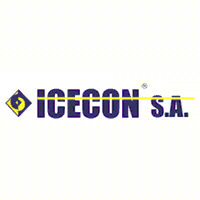
|

| |
| | | |
| |
The European Virtual Institute for Integrated Risk Management (EU-VRi)
| |
| |
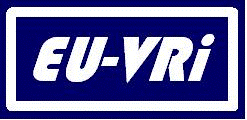 |
The European Virtual Institute for Integrated Risk Management (EU-VRi) is the European organization which provides professional services, consulting, information and education needed in the broad area of modern integrated risk management and, in particular, management of emerging risks. EU-VRi has been legally established in Nov. 2006 by 5 founding members (BZF, INERIS, Steinbeis, Technologica, and University of Stuttgart). EU-VRi is organized as a European Economic Interest Grouping (EEIG) and its purpose is to facilitate or develop the economic activities of its members by a pooling of resources, activities or skills. The activities of the EEIG are related to the economic activities of its members and the main goal of the EEIG is to add value to the businesses of the EU-VRi members. In addition, EU-VRi facilitates the mobility of researchers between research and industry, and it acts as a vehicle to create efficient consortia to address the R&D needs and other needs of industry. In 2009 about 40 companies from the EU and other countries are associated members. They come from industry, R&D organizations and academia, governmental and non-governmental/international organizations and SMEs (small and medium enterprises). From 2009, EU-VRi has increased its participation in projects dealing with emerging technologies, such as nanomaterials and new energies, and the associated risk management.
|

| |
| | | |
| |
Finnish Institute of Occupational Health (FIOH)
| |
| |
|
Finnish Institute of Occupational Health (FIOH) is a multidisciplinary research and specialist organization the mission statement of which is to promote occupational health and safety as part of good living. The strategic goals of the Institute are:
- Safe and meaningful work
- Supportive organizations
- Effective occupational health services
- Flourishing employees
FIOH is a national governmental institute covering relevant research aspects of work life and conditions of work, including surveillance of working conditions, well-being at work, physical, chemical, biological and physiological exposures, occupational medicine, psychology and stress, epidemiology, safety and organization of work. The main functions of the Institute are research, specialist advisory services, training and communications. The Institute was founded in 1945 by the State Medical Board and social partners from industry and trade unions, insurance institutions and the Ministry of Social Affairs. In 1978 the Institute was nationalized under the Ministry of Social Affairs and Health. The board of directors of the Institute consists of representatives from Ministry of Social Affairs and Health, Ministry of Employment and the Economy, labour Organizations and employer organizations. The Institute receives state subsidies which cover 80% of the costs of the operations approved by Parliament, and is expected to raise funding for the remaining 20% itself. |

|

| |
| | | |
| |
University of Minnesota, Particle Technology Laboratory (UMN-PTL)
| |
| |
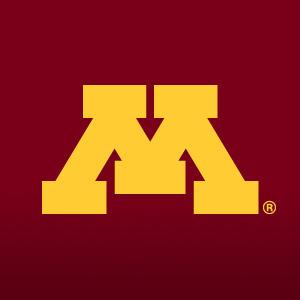 |
The Particle Technology Laboratory is one of the leading centers of small particle research in the U.S. It was founded in the 1950's by the late Professor K. T. Whitby. The immediate past director is Regents’ Professor Emeritus Benjamin Liu. It has grown to its present size of six faculty members, four technical and support staff, and approximately 25 graduate students working on various research projects and degree programs. The Laboratory has published approximately 1,450 papers and reports, and produced approximately 150 Ph.D.'s and 400 Master level students. PTL is well-known for its instrumentation development activities. Instruments for particle generation, measurement, sampling and analysis in the range of 0.002 to 100 µm have been developed. Research has been incorporated into codes and standards by NIST, ASTM, ASHRAE, EPA, and ISO, etc.
Major facilities of the Laboratory include 15,000 square feet of general laboratory space, and 500 sq. ft. of class 100 cleanroom space; wind tunnel, filter testing, and vacuum facilities; instruments for particle generation, measurement, sampling and analysis in the 0.002 to 100 µm diameter range; and microscopes, electron microbalances, gas analyzers, anemometry and other laboratory instruments. The estimated value of the laboratory instrumentation is in excess of $3 Million.
The Laboratory also offers an annual Aerosol and Particle Measurement Shortcourse for training professionals from industry, university and government laboratories. It has now been offered 34 times with over 1,900 attendees.
|

| |
| | | |
|
|